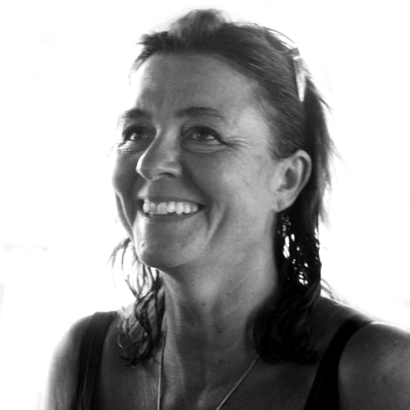On the edge of a tropical dry forest on the northwestern coast of Costa Rica is a wilderness retreat that turns the whole concept of a luxury resort on its head.
Remote and untamed, Kasiiya Papagayo is also remarkably accessible—it requires only a five-hour flight from New York and then an hour-long drive from Liberia’s Guanacaste International Airport.
“Citizenship comes with a hunger for the uncut world,” wrote Richard Powers in his Pulitzer Prize–winning novel, The Overstory. It weaves a narrative that expresses a longing for the natural world, for trees. The same hankering drives much of luxury travel today. Close to nature is how we want to vacation now.

At Kasiiya, nine simple, tented lodges are dispersed throughout a 123-acre stretch of dune and forest. There are no real walls to separate guests from the out-of-doors. The wide bay serves as an amphitheater, cradling the stage set that is the beach, fringed with grasses, bromeliads, and the rising hills.

To people who want for nothing, offer less, not more. There are no schedules, no multi-choice menus, no keys, no playlists, no TV, and certainly no Muzak to distract from the spectacle of nature. Less noise, less stuff—instead, just the gift of time and space.
It is a world away from the manicured estates and raked beaches of the big-name resorts, whose lights glitter on the far side of the Gulf of Papagayo. But it is harder to detach, emotionally, from the news bulletins of a distant war. Black frigate birds arching across the cobalt sky are squadrons of stealth bombers in formation, seen above the naked branches of what was once a jacaranda tree. I watch as one member peels away, hurtling headlong into the surf.

Before long, though, the slow-paced rhythm of the place gets you, like the constant murmur of the surf that haunts your dreams. It’s hypnotic watching the turtles lumber up to lay eggs in “my” dunes as the giant-crested iguanas do push-ups on the prehistoric boulders that bookend the beach. A meditative sense of peace comes from being still long enough to watch a leaf’s slow spiral, before it settles with a crackle on your canvas roof.

The innate healing energy of Kasiiya is nothing less than transformative. Two days in, it has cleared the sinuses, stopped the snoring, and even eased the arthritic and apocalyptic mood of my doom-merchant husband, a former war photographer.
When an osprey surprises us, swooping to pluck a tuna out of the waves in its talons, my husband beams over the binoculars. “This is why visitors to Costa Rica are always looking up,” he says. “They are looking for the Messiah in a macaw!”
To people who want for nothing, offer less, not more.
His face is a picture. A dragonfly has landed on his grizzled head, a gauzy barrette. I hadn’t seen one for decades, and I had forgotten I missed these remembrances of my childhood summers in England, full of lakeside games of rounders.

At Kasiiya, the experience conjures a sort of nostalgia for that humming world, before the insect counts dwindled and the seas were choked by algae. It’s about the intimacy of witnessing howler monkeys shrug their growing young from their backs. It’s seeing detail as though for the first time—the curvature of the earth on the widest of horizons, an arc broken only by the distant breaching of a humpback whale.
Susan Minot, the Manhattan-based author and Kasiiya’s recent writer-in-residence, concedes that it is impossible, even for a restless soul like hers, not to succumb to the relaxing mantra of the resort. In her words, the sense of release, particularly under the care of Yamuma, the resident healer, is like “a hot slow lava that moves through the veins. And soon, you are weeping.”

Evidently, we will pay a lot of money—more than $1,000 a night, all-inclusive—for the privilege of a good bawl. Yamuna, a Chinese-German-indigenous Costa Rican with a Hindu name, is the real deal. He welcomes us from his cabin across a rope bridge. There’s a blast of his conch shell, a cleansing waft of incense smoke, and, if permission is granted, a hug at the end of the session. If it has been nearly three years since anyone laid their hands on you, as Minot confides, no wonder you cry.
Stays at Kasiiya Papagayo can be arranged through Cazenove + Loyd as well as booked independently through the hotel
Catherine Fairweather is a travel writer for The Guardian, the Financial Times, British Vogue, and others. She is based in England’s West Country


